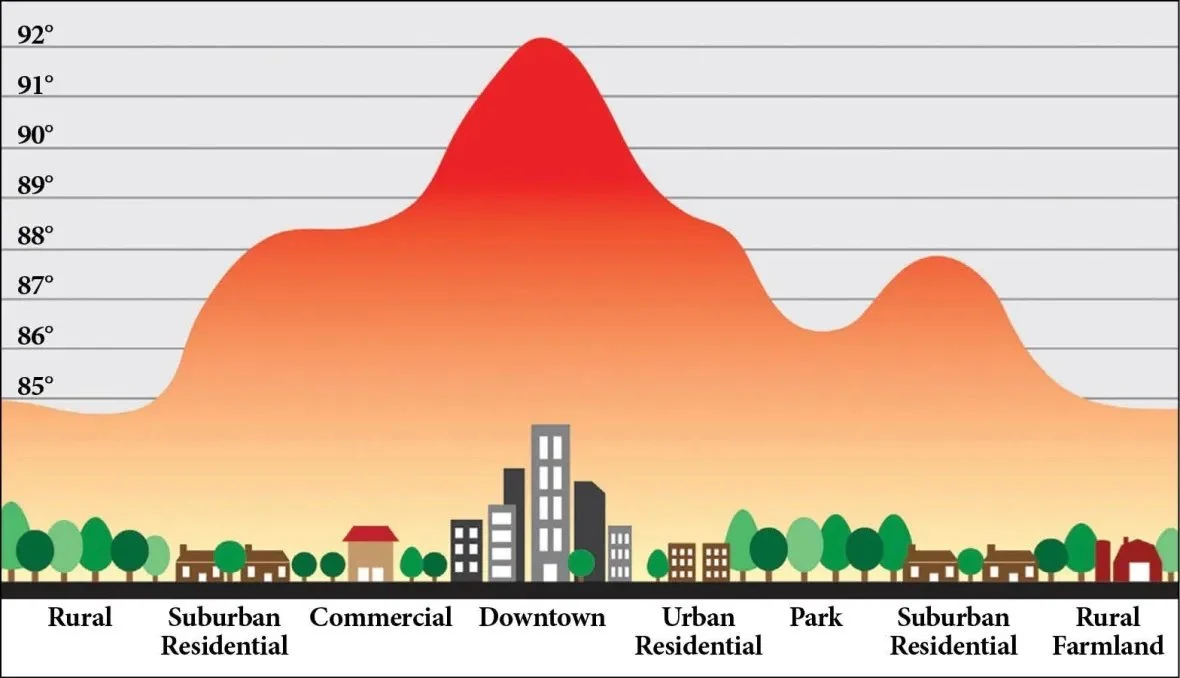
COMMON TERMS WHEN UNDERSTANDING
CLIMATE CHANGE

SUNNY DAY FLOODING
Sunny Day flooding, sometimes referred to as nuisance flooding, is occurring more frequently every year as sea levels continue to rise. This flooding is increasingly disrupting coastal community life, [1] including at Martin's Park, the Seaport, the Fort Point Neighborhood, and along the city's coastline. This type of flooding is not storm related.
In Boston, high tide flooding has accelerated by more than triple the national average. The city - built partly on filled land over the centuries - has registered more high tide flooding than any other city in the country. [2]
HEAT ISLANDS
Heat Islands are urban areas, such as town centers and cities, that are covered in asphalt, pavement, and cement - dark surfaces that absorb the sun's warmth. These areas heat up faster and stay hot longer than greener and less developed areas. Researchers call this the "urban heat island effect".
In summer months, this effect can become dangerous to human health, particularly in underserved and environmental justice communities that have far less natural space than wealthier communities.
A 2021 heat resilience study conducted by the City of Boston showed that historically underserved areas of the city can be over 15 degrees hotter than well-resourced communities during a heat wave
Credit: NPS and BayAreaMonitor.org
KING TIDES
King Tides are a popular, non-scientific term people often use to describe exceptionally high tides that occur during a new or full moon (more formally known as the Perigean Spring Tide).
In Boston, Wicked High Tides/ King Tides and sunny day flooding have occurred frequently in the last few years. Flooding along parts of Boston's Harborwalk, including at Martin's Park, has made the walkway under the Seaport Blvd bridge impassable. In September, October, and November witness and learn about Wicked High Tides at Martin’s Park in conjunction with Stone Living Lab and the Boston Children’s Museum.
Credit: NOAA
ENVIRONMENTAL JUSTICE
The just treatment and meaningful involvement of all people, regardless of income, race, color, national origin, Tribal affiliation, or disability, in agency decision-making and other Federal activities that affect human health and the environment.
Read Heat Islands to learn more..
Credit: EPA


